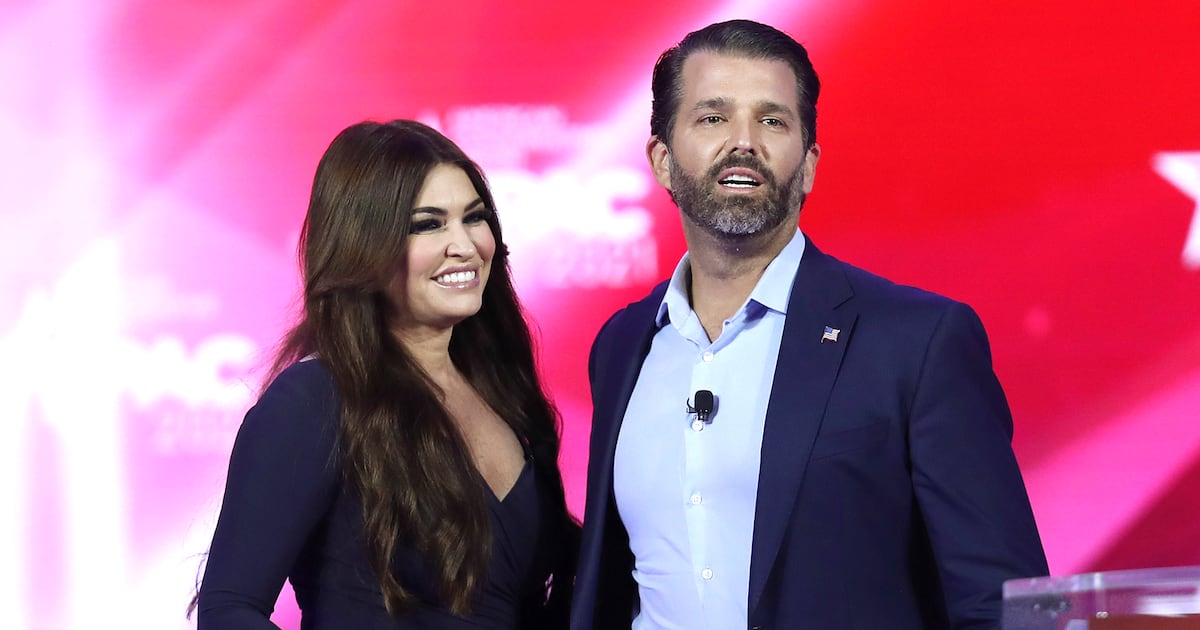Not long ago, Pope Francis made a statement in St. Peter’s Square that did serious, perhaps irreparable damage to the Chill Pontiff persona he’d so fruitfully been cultivating. “A society with a greedy generation,” he declared, “that doesn’t want to surround itself with children, that considers them above all worrisome, a weight, a risk, is a depressed society.” Then he fired this shot heard round the world: “The choice to not have children is selfish.” Unlike many theological utterances, it left no room for interpretation or exegesis. Don’t want kids? Your name is that much closer to being erased from the Book of Life.
Some found this easy to write off as so much papal bull. The Church, they argued, only opposes contraception and childlessness because it wants to enlarge its flock. I couldn’t bring myself to be so dismissive. Yes, I could see the flaws in the Pope’s argument. Though a selfish person might be less likely to want kids, it doesn’t follow that a desire not to have kids must necessarily be rooted in selfishness. Nor is it true that one can’t want kids for selfish reasons. That said, my nagging suspicion was that for every person with unusual and sincere reasons for remaining childless, thousands were merely selfish and too vain to admit it.

Which, I wonder, am I? At the time of the Pope’s address, I had been single for two years following the dissolution of a long relationship—the longest and most important of my life—because I didn’t want kids. Well, not exactly: I’d refused to decide; I’d hemmed and hawed; I’d rehearsed every pro and con until it must have been impossible to distinguish whatever the hell I was doing from stalling. If I’d had a copy of Meghan Daum’s new anthology Selfish, Shallow, and Self-Absorbed: Sixteen Writers on the Decision Not to Have Kids to inform my thinking, I might have made more sense to myself.
ADVERTISEMENT
Daum’s book collects essays by women and men, both gay and straight, about why they have chosen to remain childless or, as an emerging buzzword or euphemism has it, childfree. Her decision to ask career writers about this issue seemed like it was doomed to yield career-specific responses—a lot of “room of one’s own” stuff, about how difficult it is to concentrate on writing while terrorized by musical mobiles and projectile evacuation. In fact, these essays cover most every anxiety about or argument against children that a person of any occupation could suggest.
Besides, the great thing about writers is that they can write. They can take the feelings or concerns that many of us grapple with and articulate them in vivid, entertaining, persuasive, disturbing, even infuriating ways. There were moments reading this book when I wanted to throttle a writer and others where I felt as though he’d hacked into my email, my Gchat, even my very soul. What worried me far more than the contributors’ shared career was Daum’s title. By foregrounding these common attacks on childless people, it seemed to dismiss such attacks as self-evidently risible.
But they aren’t. Why is it that so many Americans, no longer content with having their freedom, also seek to dictate what we may think about how they use it? Why must they be coddled and congratulated for every choice? I didn’t want to read a book that rejected out of hand the possibility that childless people might be childish. I wanted a debate, a plurality of voices, Pandaemonium, not a Greek chorus. I wanted to see the guilt and shame that I’d felt, alongside the strident fuck you, you don’t know my life tack that I expected many of these writers to take. Thwarting the dream of someone you love is one of the most miserable things you can do. Justified or not, I didn’t want to be patted on the back for it.
Well, Daum’s book is a debate. These sixteen essayists must argue not only with friends, family, and strangers who attempt to dissuade them from childlessness but also with their own consciences. They demonstrate how truly complex and painful the decision not to have children is for many serious people. Daum writes in her introduction of her desire to “find some different ways of talking about the choice not to have kids,” to “lift the discussion out of the familiar rhetoric, which… pits parents against non-parents and assumes the former are self-sacrificing and mature and the latter are overgrown teenagers.” She more than succeeds at this. Not all of these essayists are equally sympathetic or convincing; a few of them are, frankly, hard to stomach. But they all have plenty to contribute.
They are not, it apparently must be said, monsters. Many of these writers feel compelled to reassure the reader that they don’t actually hate children, that they have beloved nieces and nephews, that they adore their friends’ kids (or at least enjoy them in moderation). Rarely is there a “protesting too much” quality to this avowal. It reflects the frustration one feels at being convicted without having been tried.
So why have these sixteen writers kept the stork at bay?
My favorite essay in Daum’s book, which is also the final one and the funniest by a wide margin, is by the essayist and cartoonist Tim Kreider. It spoke to the two things that came up most often when I discussed the possibility of kids: indifference and fear. “It simply never even once occurred to me to have children,” he writes, “any more than it ever occurred to me to enlist in the Coast Guard or take up Brazilian jujitsu.” I’d said the same to my horrified, disappointed girlfriend once, with “to learn Spanish” doing the work of Kreider’s examples. I knew I should have kept my mouth shut, not because it was a lie but because it was true and it meant that there was something wrong with me.
That was the “indifference” part. I didn’t want kids because I didn’t want them. This is a surpassingly hard thing for many to fathom. Some people do not feel the biological imperative to reproduce, in the same way that they don’t feel homicidal impulses or same-sex attractions. Sometimes they consider reproducing anyway, because the person they love wants to do it. “You may not like kids, but you’ll love your own kids,” the wisdom goes, which always put my younger and cruder self in mind of drugs: You may not love heroin now, but wait until you’ve got a bouncing baby addiction of your own. Kreider again:
Even that old sourpuss Cormac McCarthy seems to have been transformed by fatherhood; his novel The Road, best known for its unrelieved bleakness… is the first in which he’s written convincingly about a truly loving relationship (as opposed to an obsessive Liebestod for a beautiful doomed prostitute or the enduring bond between a boy and his wolf): the love the nameless protagonist feels for his fragile, ineducably decent son.
Yes, there is the possibility of transformation, but then fear steps in, and fear of perils more mundane than the end of the world. “Some friends of mine lost their young daughter a few years ago,” Kreider writes. “[M]ost people, me included, recoil from even trying to imagine what they’ve suffered.” I remember a day at the beach, watching my ex-girlfriend’s niece and nephew splash around in the surf, during which I felt like a border collie on amphetamines. The prospect of feeling like that for eighteen years convinced me that there were probably others better suited to child care than I was or ever could be.
Fear of the innumerable accidents and tragedies that might befall a child is, in a sense, fear of the parameters of life itself, and by that token selfish. The same cannot be said of the financial anxieties that come up repeatedly in this collection. Michelle Huneven relates that she was “poor for decades” and not even “comfortable” until her fifties. Pam Houston quotes the frightening average cost of raising a child at $235,000. When Kate Christensen speaks of “finally” selling a first novel, any publishing-savvy reader knows that this must have been a boon to her career but not necessarily to her bank account.
The fear of financial instability felt by any writer who is not, say, E. L. James is felt by many other Americans. As of this writing, according to Deutsche Bank, nearly half of U.S. households save nothing. If you are the head of such a household, is it more selfish not to have kids or to raise them at someone else’s expense?
Some worry, often because of mental illness, about being inadequate or bad parents. Kate Christensen writes of “crying jags during which I could hardly get out of bed, alternating with manic episodes that involved inappropriate flirting, drinking, and staying up all night.” In the wreckage of a terrible childhood, Danielle Henderson “decided to take the love I’d have for a child and give it to myself instead… Every day, I try to be my own parent—the parent I never had.” The lifetime of depressive episodes described by Elliott Holt yields the grace she needs to find satisfaction in being, as her essay’s title has it, “Just an Aunt.”
Anyone who has refrained from having kids has heard the question, “Aren’t you worried that you’ll regret it later?” Geoff Dyer, author of the second funniest essay in Daum’s book, has a satisfying answer: “[W]hile life may not have a purpose, it certainly has consequences, one of which is the accumulation of a vast, coastal shelf of uncut, 100 percent pure regret. And this will happen whether you have no kids, one kid, or a dozen.” He is backed up by Tim Kreider: “Since I already regret every other thing I have ever done or failed to do, I don’t see why this decision should be exempt… Sure, no doubt I will realize, once it’s far too late, that I have failed to do the one dumb job it was my charge to do during my brief time on this planet, a job countless fungi, flatworms, and imbeciles have successfully carried out for eons.”
The part of this book that invites criticism—preemptive, half-joking—as selfish, shallow, and self-absorbed is the one that focuses on what you sacrifice to be a parent. “Our shared passions thrill and satisfy us,” writes Kate Christensen, “and our abundant freedoms—to daydream; to cook exactly the food we want when we want it; to drink wine and watch a movie without worrying about who’s not yet asleep upstairs… are not things we’d choose to give up for anyone, ever.”
It took courage to admit that, I suppose, if and only if the author understands how little admiration it commands. Pam Houston’s litany of travel destinations—“Bolivia, Botswana, Laos, Serifos, Paris, Istanbul… Telluride, Provincetown, Grand Forks, or New Smyrna Beach”—is difficult to read with a straight face. I don’t want kids, but the notion that visiting Provincetown or Paris might change my life in the way that a child would is an insult less to my intelligence than to my imagination.
Geoff Dyer is willing to admit to being selfish: “I am yet to hear a convincing argument as to why I should spend more than about twelve hours a year, max, doing anything I don’t want to do. Is that adolescent?” Since you ask, yes. (It is worth inquiring why so many memoirists believe that identifying their worst traits somehow exempts those traits from judgment.) Far more sympathetic was Lionel Shriver’s remark: “[M]y stunted progeny are eight inches high and made of pulped trees, and if they keep me up at night I can quiet them by rewriting a lousy chapter in the morning.” It is easier to sympathize with those who—as so many of these essayists do—view art or career as the equal of children than it is those who view pleasure, novelty, or adventure in the same way.
“As a woman who chooses childlessness,” Danielle Henderson says, “I generally have just one problem: other adults.” She is speaking, of course, of society’s expectations. Society insists that women must make babies, that they must be feminine and nurturing. Nobody would dispute this in good faith. It must be a difficult expectation for childless women to negotiate. Then again, society—which is just a fancy way of saying “other adults”—expects people to do a lot of different things. It has been ever thus. It is a lot easier to learn to shrug off judgment than it is to remake “society” in one’s own image. There are plenty of societies in which the consequences of a break with tradition are greater than the occasional annoying question and furrowed brow. We are nothing if not lucky.
“I don’t really want to have a baby,” Jeanne Safer recalls thinking. “I want to want to have a baby.” This realization is, of course, vastly more painful for a woman, who faces far greater opprobrium—or, at minimum, incomprehension—for her choice to remain childless. But it is painful for anyone who has wrestled with it, who has tried to will himself to feel what he does not feel and wondered, despairingly, why he does not feel it. It is painful to be told, as casually as someone might recommend a TV show, that you will change your mind about kids once you’re with the “right person.” The all-knowing arrogance is bad enough, but worse is the question it plants: What if it’s true?
The best takeaway from these mostly generous and sincere but always thought-provoking essays is this: If you’ve found joy in children, be happy, but do the childless a favor and don’t proselytize. A million missionaries just like you have already knocked on their doors, and odds are you have nothing new to offer. Be grateful that it was an easy, or easier, decision for you to make, and as for the rest of us, just let nature take its course. You never know. Left to our own devices, some of us might change our minds.






